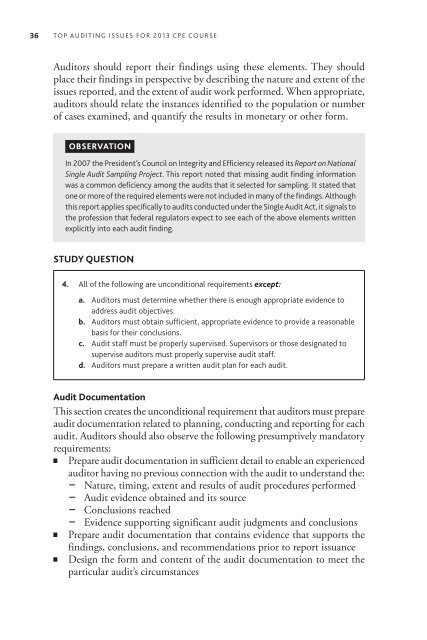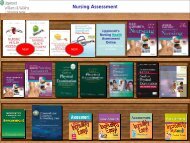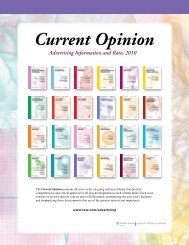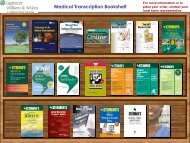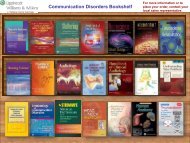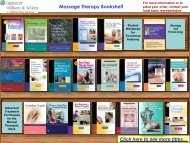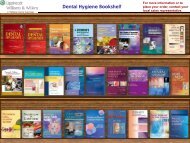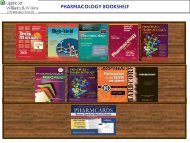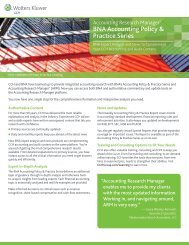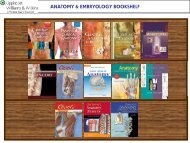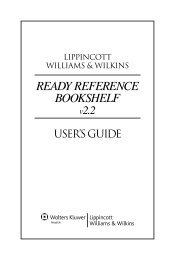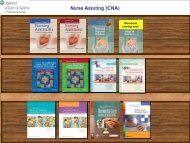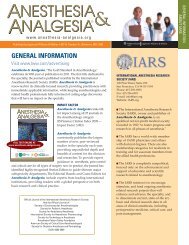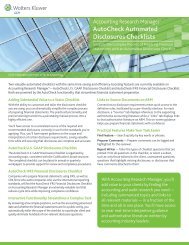TOP AUDITING ISSUES FOR 2013 - CCH
TOP AUDITING ISSUES FOR 2013 - CCH
TOP AUDITING ISSUES FOR 2013 - CCH
You also want an ePaper? Increase the reach of your titles
YUMPU automatically turns print PDFs into web optimized ePapers that Google loves.
36<br />
<strong>TOP</strong> <strong>AUDITING</strong> <strong>ISSUES</strong> <strong>FOR</strong> <strong>2013</strong> CPE COURSE<br />
Auditors should report their findings using these elements. They should<br />
place their findings in perspective by describing the nature and extent of the<br />
issues reported, and the extent of audit work performed. When appropriate,<br />
auditors should relate the instances identified to the population or number<br />
of cases examined, and quantify the results in monetary or other form.<br />
OBSERVATION<br />
In 2007 the President’s Council on Integrity and Efficiency released its Report on National<br />
Single Audit Sampling Project. This report noted that missing audit finding information<br />
was a common deficiency among the audits that it selected for sampling. It stated that<br />
one or more of the required elements were not included in many of the findings. Although<br />
this report applies specifically to audits conducted under the Single Audit Act, it signals to<br />
the profession that federal regulators expect to see each of the above elements written<br />
explicitly into each audit finding.<br />
STUDY QUESTION<br />
4. All of the following are unconditional requirements except:<br />
a. Auditors must determine whether there is enough appropriate evidence to<br />
address audit objectives.<br />
b. Auditors must obtain sufficient, appropriate evidence to provide a reasonable<br />
basis for their conclusions.<br />
c. Audit staff must be properly supervised. Supervisors or those designated to<br />
supervise auditors must properly supervise audit staff.<br />
d. Auditors must prepare a written audit plan for each audit.<br />
Audit Documentation<br />
This section creates the unconditional requirement that auditors must prepare<br />
audit documentation related to planning, conducting and reporting for each<br />
audit. Auditors should also observe the following presumptively mandatory<br />
requirements:<br />
Prepare audit documentation in sufficient detail to enable an experienced<br />
auditor having no previous connection with the audit to understand the:<br />
Nature, timing, extent and results of audit procedures performed<br />
Audit evidence obtained and its source<br />
Conclusions reached<br />
Evidence supporting significant audit judgments and conclusions<br />
Prepare audit documentation that contains evidence that supports the<br />
findings, conclusions, and recommendations prior to report issuance<br />
Design the form and content of the audit documentation to meet the<br />
particular audit’s circumstances


